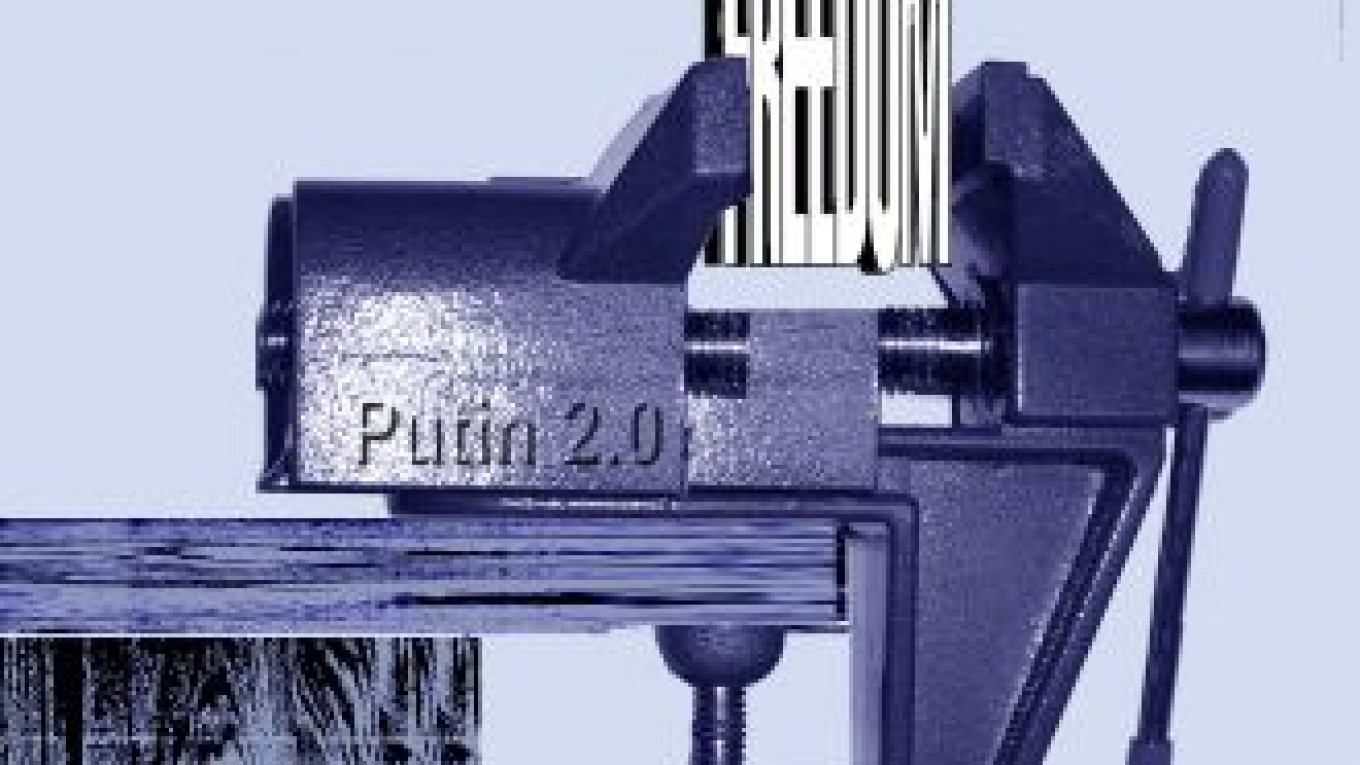Putin 2.0 has turned a corner, pushing the country further in the direction of authoritarianism. Rather than following the strategy of gradual liberalization and democratization under a second presidential term under Dmitry Medvedev, President Vladimir Putin chose the worst of all options. He decided not just to return to the presidency but to rollback much of Medvedev’s thaw and begin a crackdown on opposition forces.
Putin’s announcement in September 2011 that he would like a third presidential term proved problematic, alienating various political forces and prompting countrywide demonstrations after the December 2011 Duma vote. The younger, liberal-oriented generation concluded that former President Dmitry Medvedev had betrayed them by refusing to challenge Putin.
One of the reasons Putin turned toward more authoritarianism in his third term was that he feared that Medvedev had formed an axis with the West during his presidency, which undermined Russia’s global credibility and Putin’s authority at home.
After returning to the Kremlin in 2012, Putin still had the option of continuing the liberalization programs that Medvedev had started, but instead Putin initiated a crack-down on the opposition and civil society. At first, the screw-tightening was limited to constraining political behavior that Putin found objectionable, and some of the adopted measures fell within the range of Western democratic practice.
But a whole series of oppressive laws adopted in the past year is moving Russia into a era of greater authoritarianism, taking the country even further from the soft authoritarianism of Putin’s first two terms in office. The State Duma, with Putin’s support, has criminalized speech that “offends” religious believers. New laws with sweeping definitions of slander and “homosexual propaganda” further restrict free speech. Some will object, saying that opinion polls show the populace supports such measures, but this must be countered by the regime’s hegemony in the media sphere, especially television. State media campaigns against independent journalists complete the picture of an increasingly stifled atmosphere that risks crushing freedom of speech and expression.
To be fair, some blame for Putin’s turn to greater authoritarianism can be pinned on the West for two reasons. First, the administration of U.S. President Barack Obama should have expressed more support for Medvedev’s liberalization programs. This might have made Putin more of a stakeholder in Medvedev’s liberalization. Instead, the Obama administration remained largely silent about Russian domestic political developments.
Second, a debacle was created by Medvedev’s decision to abstain, instead of vetoing, the United Nations Security Council resolution establishing a no-fly zone in Libya, a move that might have been taken against Putin’s will. NATO’s subsequent military intervention in Libya was clearly in violation of the spirit, if not the letter, of the Security Council resolution. The West’s manipulation of the Security Council resolution put Russia in a weak position and exacerbated Putin’s concerns about Medvedev’s growing reformism and pro-Western orientation. He could have feared that a Medvedev-Western axis was undermining Russia’s credibility on the global stage, as well as Putin’s own authority at home.
But Putin deserves the bulk of the blame for the ongoing retrenchment when he overreacted to the Libya scenario and the street protests in Moscow. Political demonstrations are viewed by the leadership not as the natural reaction to its own missteps, but rather as part of a Western plot to dismember Russia.
Although Putin has instituted a handful of minor initiatives that could possibly be called liberal, such as the campaign against corruption and the amnesty for thousands in prison for business-related crimes, the combination of insufficient economic liberalization and a strengthening of authoritarianism puts Russia on a dangerous course of decay.
As Internet access and Russia’s development gap grow, public opposition is likely to grow into a critical mass in the coming decade. This will force Putin into a corner from which there will be only two possible outcomes: his political demise or an ever harsher campaign of political repression. Putin had his chance to leave power with some honor and a successor who might have given him a positive legacy, but that chance may now be irrevocably lost.
Gordon Hahn, senior associate of the Russia and Eurasia Program at the Center for Strategic and International Studies in Washington, is author of “Russia’s Revolution From Above” and “Russia’s Islamic Threat.”
A Message from The Moscow Times:
Dear readers,
We are facing unprecedented challenges. Russia's Prosecutor General's Office has designated The Moscow Times as an "undesirable" organization, criminalizing our work and putting our staff at risk of prosecution. This follows our earlier unjust labeling as a "foreign agent."
These actions are direct attempts to silence independent journalism in Russia. The authorities claim our work "discredits the decisions of the Russian leadership." We see things differently: we strive to provide accurate, unbiased reporting on Russia.
We, the journalists of The Moscow Times, refuse to be silenced. But to continue our work, we need your help.
Your support, no matter how small, makes a world of difference. If you can, please support us monthly starting from just $2. It's quick to set up, and every contribution makes a significant impact.
By supporting The Moscow Times, you're defending open, independent journalism in the face of repression. Thank you for standing with us.
Remind me later.


